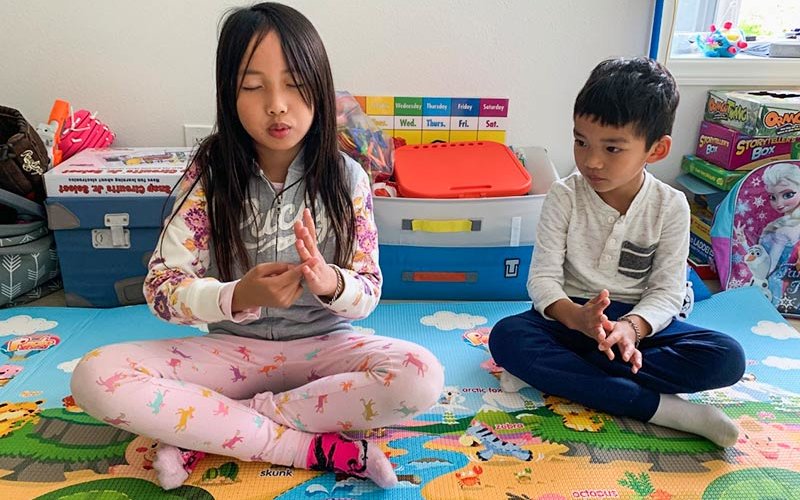
Mindfulness practitioner Natalie Tran knows the benefits of being aware of one’s thoughts, feelings and attitudes. As an educator, she conducts research on the practice of mindfulness and provides training to faculty, students, parents and teachers, especially on how they can use this practice in the workplace and in the classroom.
“Mindfulness is the energy that we create from our ability to be in the present moment,” said Tran, chair and professor of secondary education. “We can cultivate this energy by bringing awareness to our body and mind. This can be done by paying attention to your breath, thoughts, words and actions.”
With everyone affected by the novel coronavirus pandemic, Tran encourages people to take a breath and partake in deep relaxation through the practice of mindfulness.
Why is mindfulness important in this pandemic?
The new coronavirus outbreak not only affects our physical health, but also has an impact on our mental health. Many are experiencing fear, anxiety, hopelessness, loss and despair during these challenging times. We not only experience these factors at the individual level within our household or immediate family, but we also experience them at the collective level through various forms of consumption, including media, workplace, social platforms and events happening worldwide. To counter these negativities, we need to cultivate a different kind of energy through mindfulness — a form of positive energy that has the capacity to bring us peace, tranquility, creativity, innovation, freedom and kindness.
What are some of the benefits?
There are great benefits to the practice of mindfulness, including an increase of awareness within ourselves and our surroundings. The energy cultivated through mindfulness has the ability to reduce stress, anxiety, emotional and physical pains. At the deeper level, the practice of mindfulness over time can enhance our concentration. With greater concentration comes insight, and insight can lead to true transformation — and that is the power of mindfulness.
How has mindfulness helped you?
As a longtime practitioner of mindfulness, I see great value in this practice. Mindfulness allows us to live our lives to the fullest by paying attention to the details that we often overlook — whether it is paying attention to our physical and emotional well-being or social interactions with our loved ones. When we have a clear understanding about who we are as a person, both our strengths and shortcomings, we’re able to cultivate acceptance and compassion for ourselves and others.
What are you doing at home to promote mindfulness?
I have three young children ages 6, 4 and 5 months. Like many families, we are engaging in at-home learning and adjusting to this transition. Our daily schedule looks like this: We begin the day with a morning walk, followed by learning activities, snacks, free play, arts and crafts, mindfulness, lunch and nap. We practice mindfulness for 10-15 minutes before lunch. This allows the children to ‘cool’ down, bring awareness to their breathing, body and relax. At the beginning of each meal, we remind ourselves to give thanks and offer gratitude. We have a simple phrase that we recite: “Thank you for this food. May we live every day to be worthy to receive it. May we have compassion for all beings.” These are simple things that anyone can do to cultivate healthy living.
Is there any other advice you’d like to share?
One thing that I would encourage all of us to do during this time is that while it is critical for us to stay informed and be prepared, it is also important for us to look for positive things around us — like taking walks, looking up to see the clear blue skies and beautiful clouds, and enjoy the sound of birds chirping. Most importantly, we need to be kind to ourselves and to each other.
Contact: Debra Cano Ramos, dcanoramos@fullerton.edu